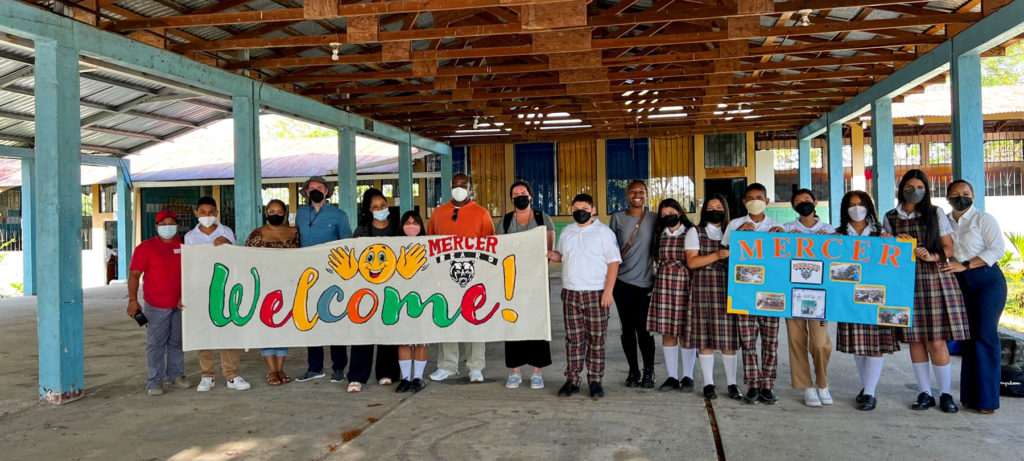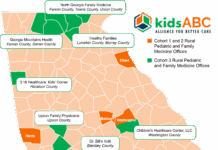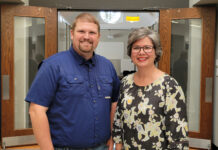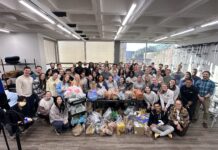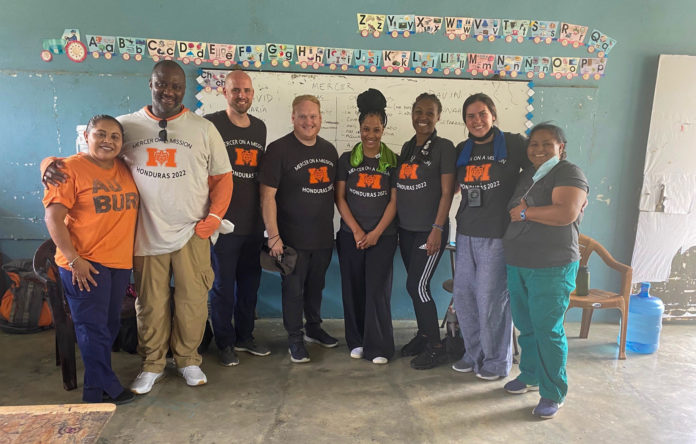
Honduran children suffering from trauma and community members in need of support received vital mental health services from a Mercer On Mission team this summer.
Students and faculty from Mercer University’s School of Medicine spent two weeks in Honduras providing therapy to children at a local school, as well as teaching community building and coping skills to people living in remote villages.
“We got into some really deep trauma discussion with some of the children,” said Mark Torphy, a student in the Master of Family Therapy program. “It turned out to be way more intense than I imagined. …
“We did some art therapy with them, and some of the pictures were just full of trauma. Kids were in tears. We were in tears. It was very surprising, to me at least, that they were going to open up to us so quickly and that they had such traumatic stories.”
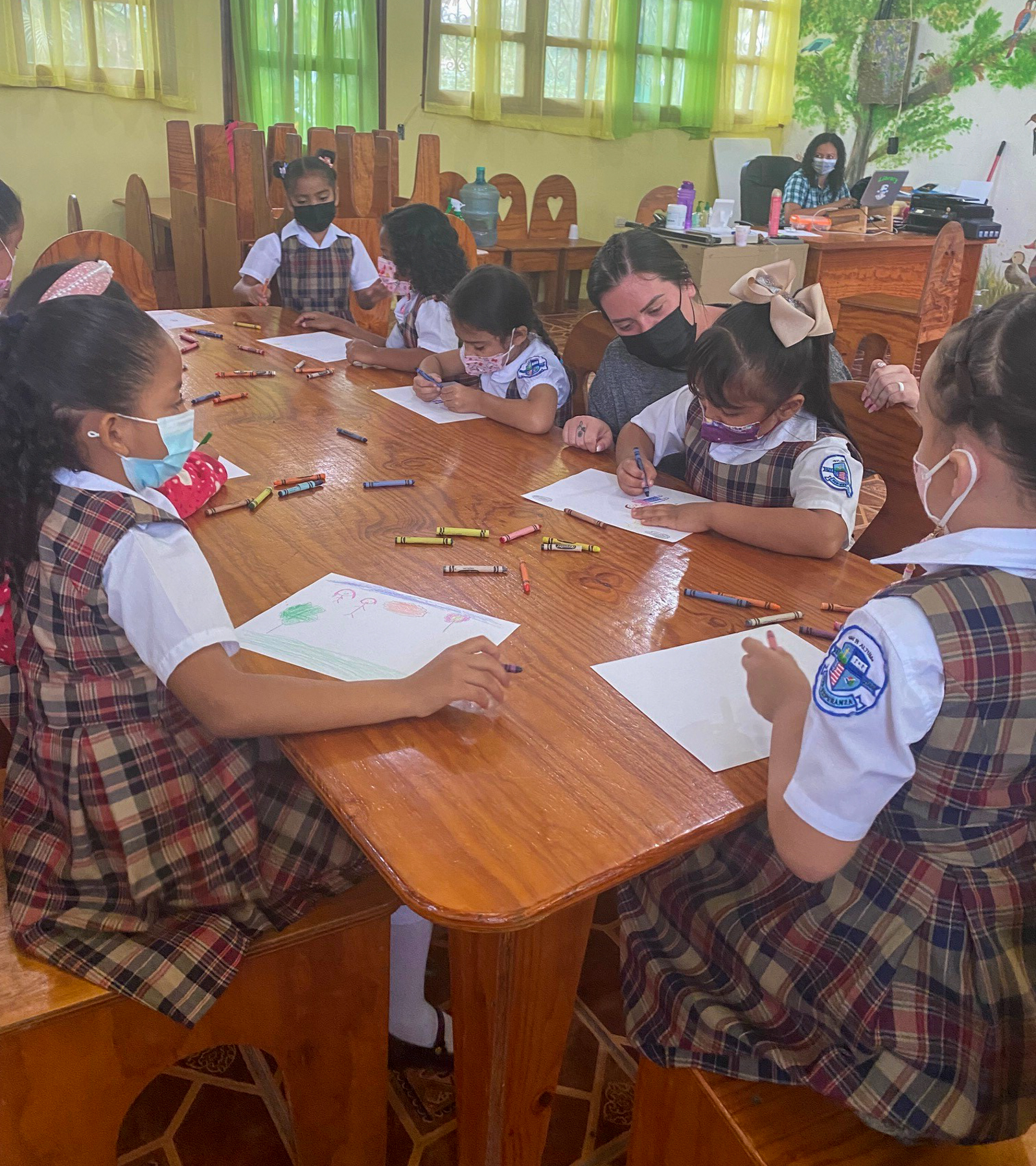
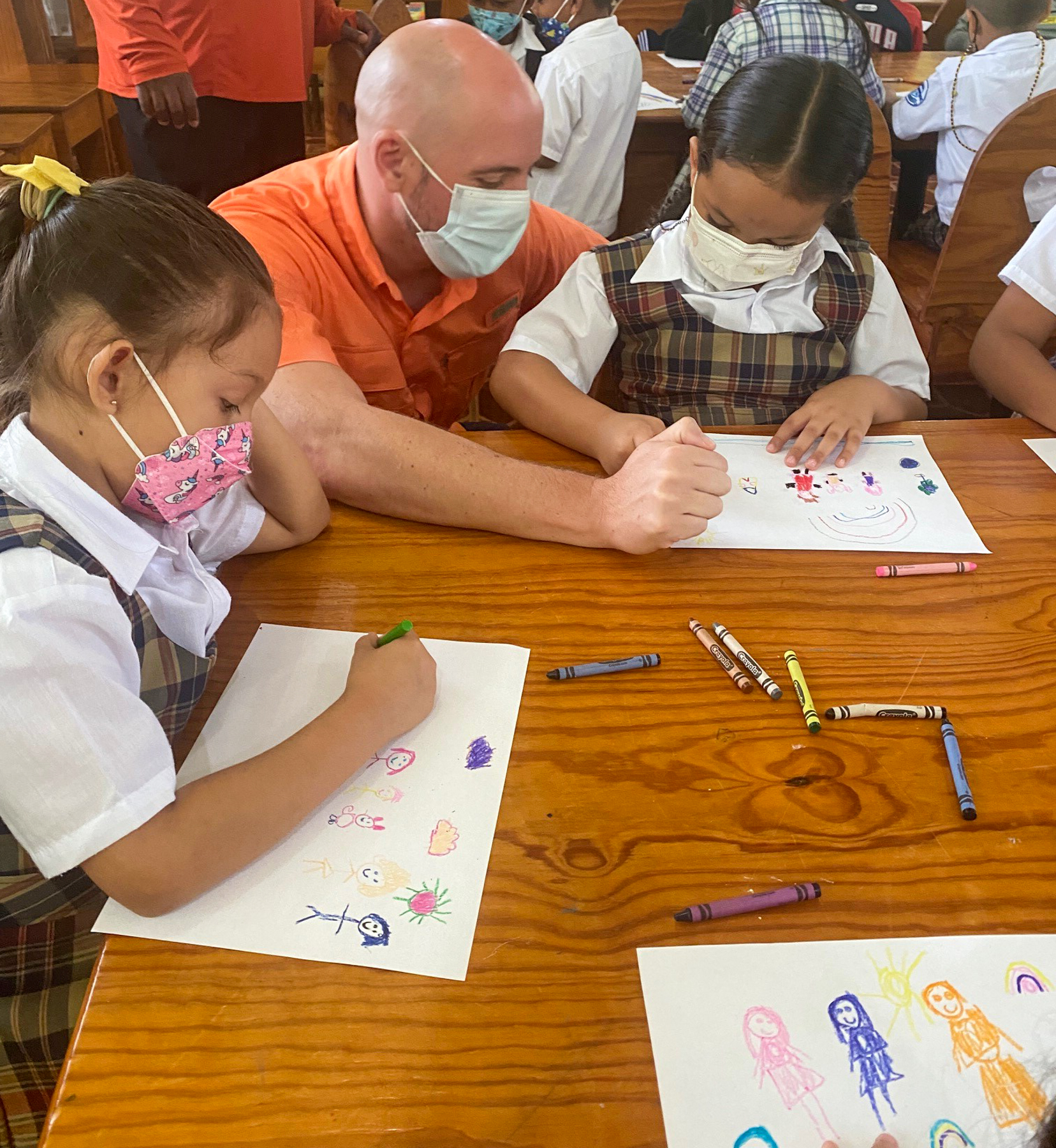
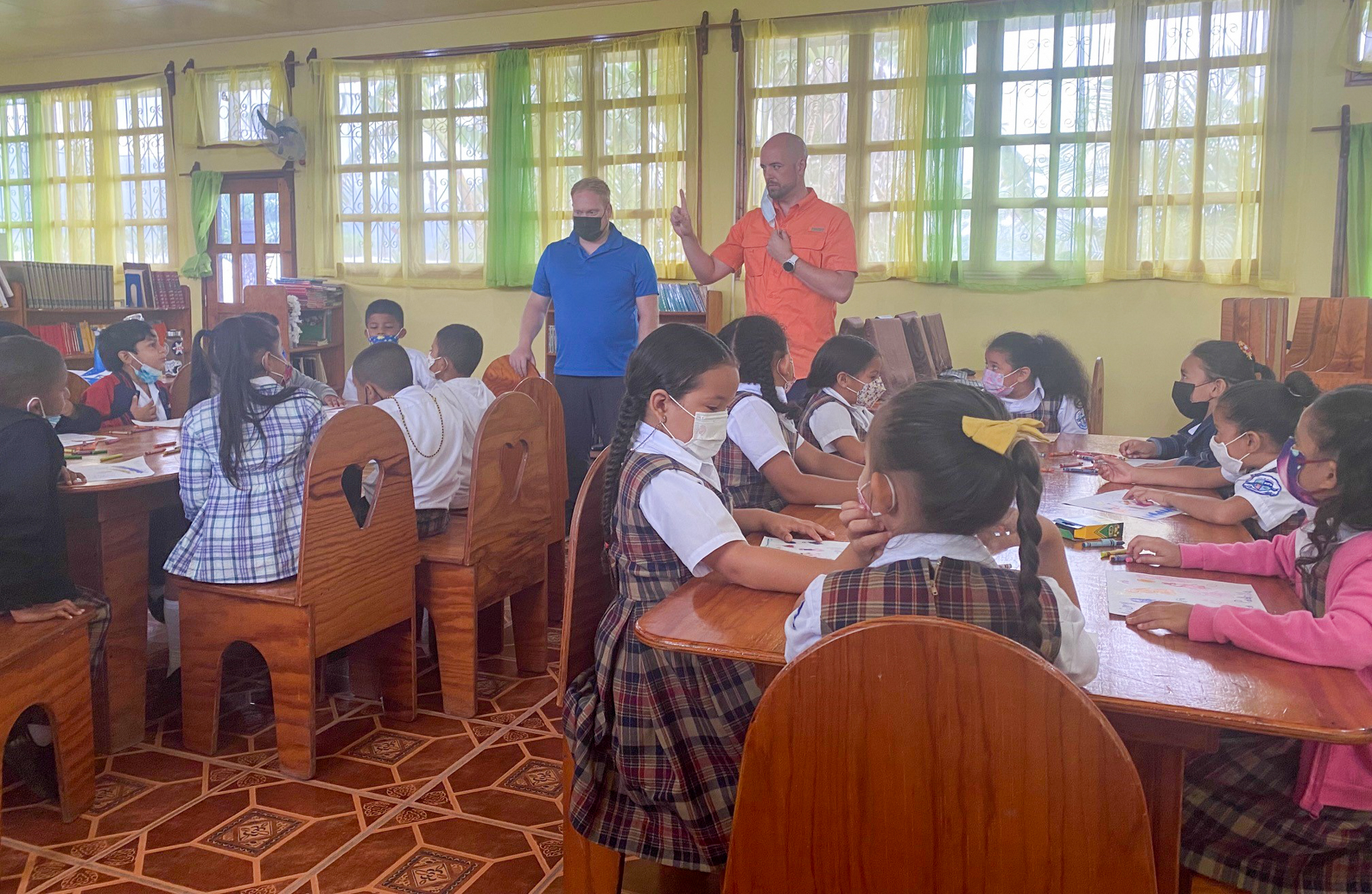
Six students from the Master of Family Therapy program participated in this year’s Mercer On Mission trip to Honduras, which was led by Dr. Morgan Stinson and Dr. David Johnson, assistant professors in the medical school’s Department of Psychiatry and Behavioral Science.
The team partnered with the nonprofit Honduras Outreach International and stayed at an HOI-run ranch in San Esteban, located in the northeastern region of Honduras.
In the mornings, the Mercerians provided therapy to kindergarten through ninth-grade students at a local school, and in the afternoons, they worked with families dealing with specific problems.
“We knew the community dealt with a lot of trauma, and trauma is kind of an umbrella term that we use to cover a lot of issues,” Dr. Stinson said.
This included coping with COVID-related deaths of loved ones and the immigration of parents and family members to the United States. In addition, some people faced challenges with substance abuse, anxiety, depression or attention-deficit/hyperactivity disorder as well, he said.
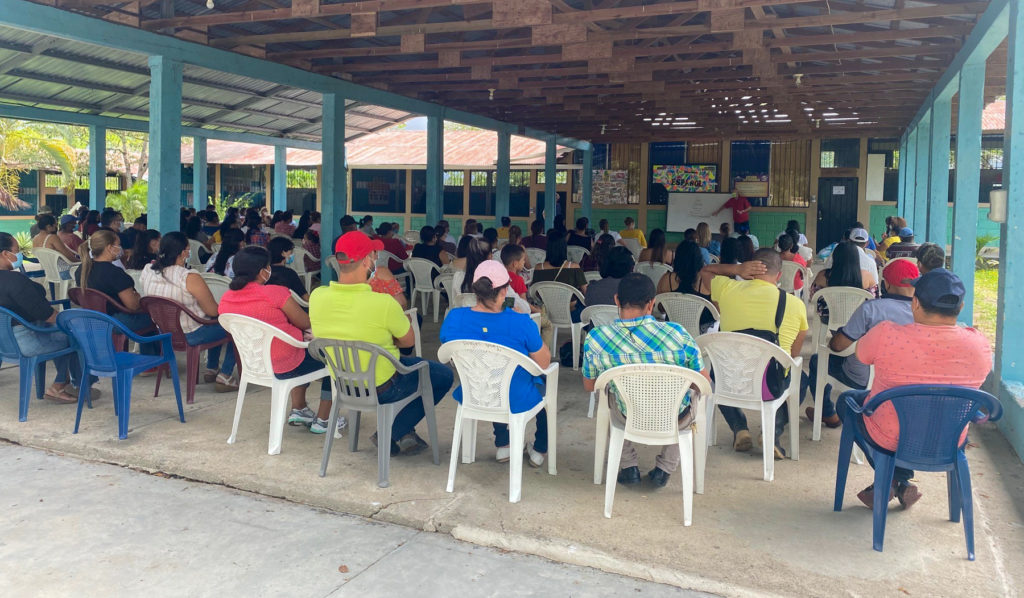
In one village, the well that supplied water was running dry, and residents had to walk miles to get clean drinking water, creating conflict among community members. In this case, the Mercer team provided tools to help with community building and support.
“We rallied them all together and spoke with them as a group and just kind of basically told them how support matters so much more than anything because if you have the support of one another, you can get through anything,” said Mariah Driggers, a student in the Master of Family Therapy program. “And so, we talked about ways to cope in terms of being together and utilizing the resources around you instead of trying to handle everything on your own because that’s exactly what they were doing.
“We showed them they have a lot of strength available to them that can help them get those basic needs met.”
On two occasions, the team visited smaller villages in more remote areas to offer support.
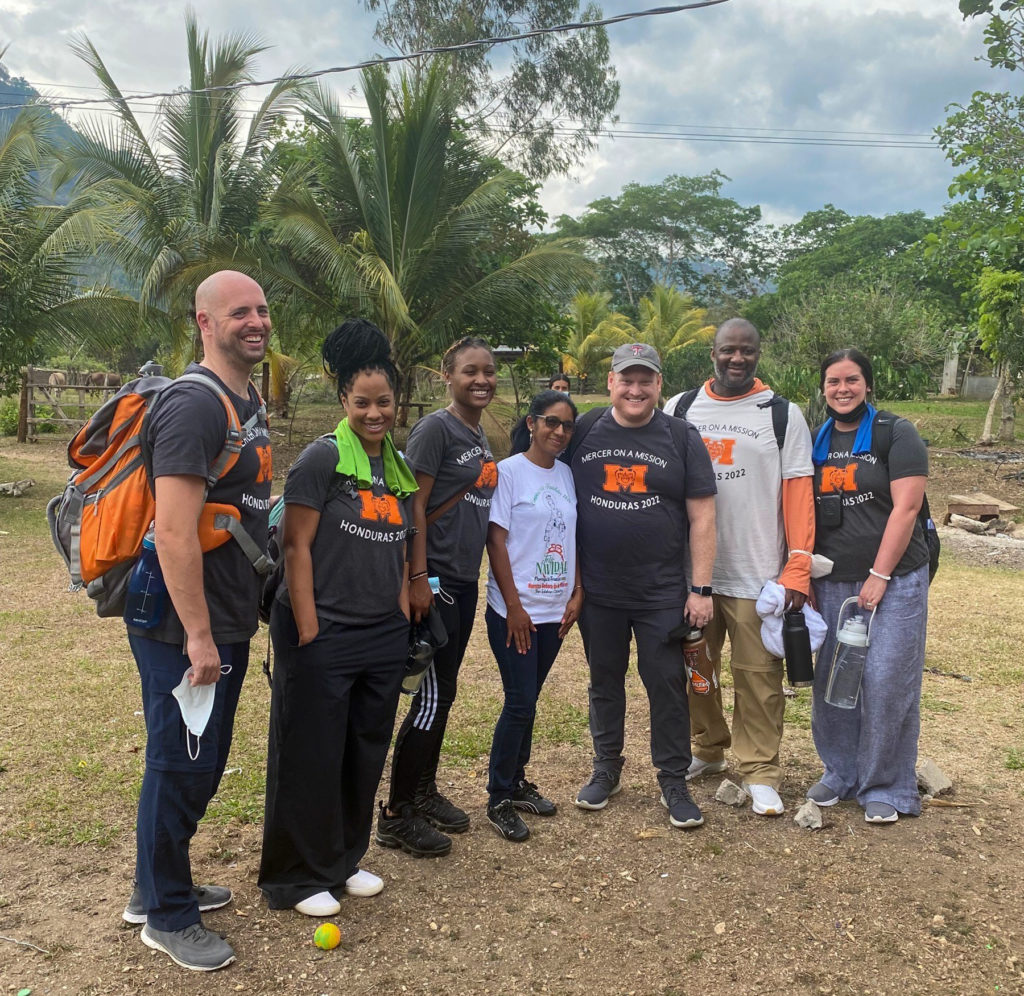
Dr. Stinson recalled driving three hours across mountains and rivers to visit the village of El Pedrero.
“We had the amazing opportunity to walk house to house in this village, and we would meet with the people,” he said. “It was really meaningful for all of our students just to share this common humanity, to hear their challenges, their worries, their concerns in their life and give our thoughts about it.
“And then we could share from our perspective the things that we work with, we worry about, we struggle with, challenges that we’re facing and hear their perspective on that.”
Driggers said the Mercer On Mission experience taught her there are ways she can help beyond seeing clients in an office setting.
“It just showed me that there’s a lot of ways that I can help outside of the therapy room, and that’s something that I was not necessarily aware of,” she said. “I want to do more. I want to help in other ways. I’m glad that I learned there are other ways that I can help.”
Torphy said the work in Honduras was challenging and meaningful. He enjoyed helping children cope with trauma and regulate their emotions.
“It was hard and draining work, but it was very fulfilling,” he said. “The experience overall was just something I really couldn’t imagine.”
